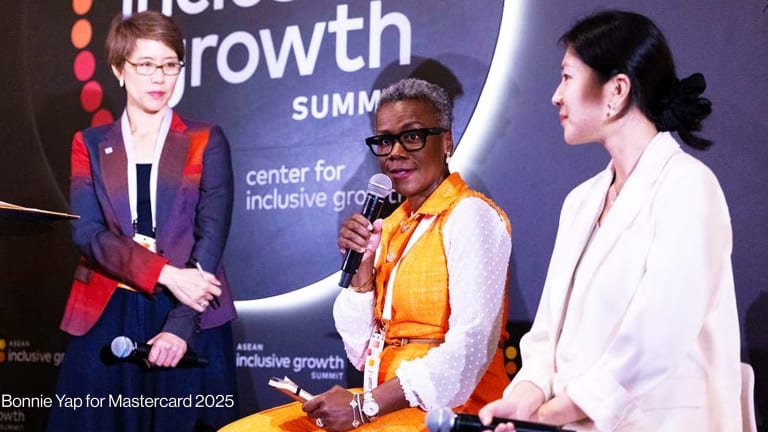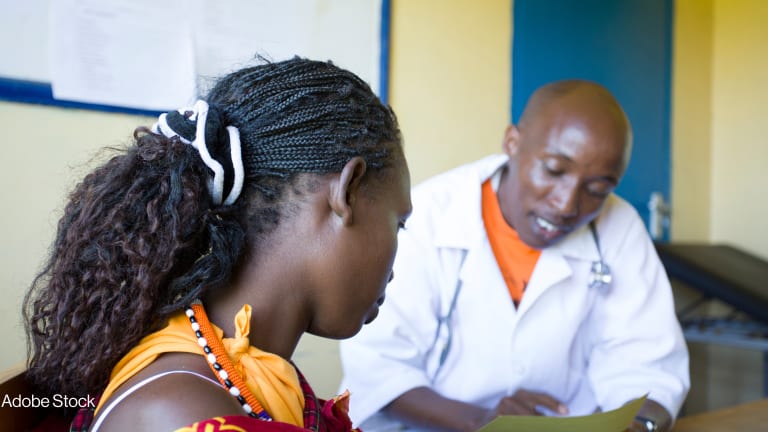How to turn big health data into big health action
The World Bank, USAID, WHO and their partners gathered this week in Washington, D.C., to endorse a new initiative to improve global health data collection in 2015 and beyond. But how can the global health community ensure data collected is put to use for patients and policymakers?
Mobile technology has revolutionized data-collection tools for health workers, but unless that data creates meaningful change, the “data revolution” will struggle to revolutionize global health systems for patients and providers. The World Bank, U.S. Agency for International Development and the World Health Organization announced this week a new Roadmap for Health Measurement and Accountability and a Five-Point Call to Action, gathering at the World Bank’s headquarters in Washington, D.C. to engage with global health and development professionals at the Measurement and Accountability for Results in Health Summit. Many health information systems around the world struggle to meet current data demands, and in the face of the post-2015 sustainable development goals, are ill-equipped to meet forthcoming data requirements. Approximately 100 countries — representing over two thirds of the world’s population — lack adequate civil registration systems and reliable data collection techniques to record causes of death according to Margaret Chan, director-general of the WHO, who spoke during the summit’s kickoff on Tuesday. “Without these data, countries and their development partners are working in the dark — throwing money into a black hole,” Chan said, adding sarcastically, “Oh yes, that is very cooperative.” But as participants at the summit pointed out, more data and better equipped data collection systems do not necessarily mean improved global health outcomes. Data collection is “not an end in itself,” but rather an “investment,” according to Ambassador Jimmy Kolker, assistant secretary for global health at the U.S. Department of Health and Human Services. Kolker acknowledged data are the “backbone” of health systems strengthening, but said that to turn it into something more meaningful requires engaging political leaders and spurring on political will to respond to what the data show. Political will, however, is not a “light switch that you turn on and off,” said Kolker, adding that careful presentation of “data, evidence and priorities” is required — something easier said than done. Representatives from several country governments — including Bangladesh, Mali and Ukraine — were present at this week’s summit, signaling their endorsement of the roadmap and five-point call to action for measurement and accountability. Whether their commitment to data collection translates into meaningful policy change at the country-level remains to be seen. As the proliferation of mobile technologies creates greater and greater opportunities to collect data, countries and development organizations can help ensure that they are actually put to use by narrowing their focus to what is really important. As Chris Elias, president of the global development program at the Bill and Melinda Gates Foundation, put it: “Measure fewer things better.” Elias explained that until now, data collection has been uncoordinated and too focused on specific programs and issues, creating “fragmented, overlapping, disaggregated data.” “Let’s get some of the noise out of the system so that we’re very focused on the signals that’ll help drive improved performance,” Elias said. One way to do that is to establish methods, tools, targets and indicators that can be agreed upon across development organizations and partners, according the Gates Foundation official. For Michael Anderson, CEO of Children’s Investment Fund Foundation, establishing data collection systems that are flexible enough to allow for bottom-up innovation is just as important as top-down coordination. Technological change is unpredictable and international organizations cannot be expected to anticipate how social innovation will transform knowledge systems. “The challenge is not to make the perfect system ... Our challenge is to build good enough systems that are flexible enough to grow,” Anderson said. Data collection will occupy a central role in post-2015 development ambitions, with new commitments and new expectations for countries, sectors and implementing partners attached to the SDGs. To cut through the “noise,” new initiatives, roadmaps, and action items will also have to examine — and close — the gap between more data and more useful data. What else can development implementers do to ensure data drives action? Have your say by leaving a comment below. To read additional content on global health, go to Focus On: Global Health in partnership with Johnson & Johnson.
Mobile technology has revolutionized data-collection tools for health workers, but unless that data creates meaningful change, the “data revolution” will struggle to revolutionize global health systems for patients and providers.
The World Bank, U.S. Agency for International Development and the World Health Organization announced this week a new Roadmap for Health Measurement and Accountability and a Five-Point Call to Action, gathering at the World Bank’s headquarters in Washington, D.C. to engage with global health and development professionals at the Measurement and Accountability for Results in Health Summit.
Many health information systems around the world struggle to meet current data demands, and in the face of the post-2015 sustainable development goals, are ill-equipped to meet forthcoming data requirements.
This article is free to read - just register or sign in
Access news, newsletters, events and more.
Join usSign inPrinting articles to share with others is a breach of our terms and conditions and copyright policy. Please use the sharing options on the left side of the article. Devex Pro members may share up to 10 articles per month using the Pro share tool ( ).
Jeff is a former global development reporter for Devex. Based in Washington, D.C., he covers multilateral affairs, U.S. aid, and international development trends. He has worked with human rights organizations in both Senegal and the U.S., and prior to joining Devex worked as a production assistant at National Public Radio. He holds a master's degree in journalism from Columbia University and a bachelor’s degree in international relations and French from the University of Rochester.








